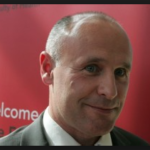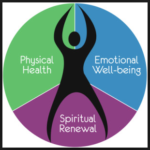This we ek’s EBN Twitter Chat is on Wednesday 5th October between 8-9 pm (BST) and will be hosted by Dr Janice Jones (@JaniceJ6873404) senior lecturer in the Institute of Vocational Learning, London South Bank University,
ek’s EBN Twitter Chat is on Wednesday 5th October between 8-9 pm (BST) and will be hosted by Dr Janice Jones (@JaniceJ6873404) senior lecturer in the Institute of Vocational Learning, London South Bank University,
Wilf McSherry, Professor in Dignity of Care for Older People School of Nursing and Midwifery,  Staffordshire University, The Shrewsbury and Telford Hospital NHS Trust, UK; Part-time Professor VID Specialized University (Haraldsplass Campus), Bergen, Norway (@WilfredMcSherr1), and
Staffordshire University, The Shrewsbury and Telford Hospital NHS Trust, UK; Part-time Professor VID Specialized University (Haraldsplass Campus), Bergen, Norway (@WilfredMcSherr1), and
Dr J oanna Smith (@josmith175) lecturer in Children’s Nursing, University of Leeds. The chat will focus on the challenges of embedding spirituality into acute healthcare settings.
oanna Smith (@josmith175) lecturer in Children’s Nursing, University of Leeds. The chat will focus on the challenges of embedding spirituality into acute healthcare settings.
Participating in the Twitter chat requires a Twitter account; if you do not already have one you can create an account at www.twitter.com. Once you have an account, contributing is straightforward. You can follow the discussion by searching links to #ebnjc, or contribute by creating and sending a tweet (tweets are text messages limited to 140 characters) to @EBNursingBMJ and add #ebnjc (the EBN Twitter chat hash tag) at the end of your tweet, this allows everyone taking part to view your tweets.
Cultural, religious and spiritual beliefs influence how an individual makes sense of the world, often shaping their experiences. During acute or life-threatening illness drawing on these beliefs can provide com fort, strength and support and often assume greater importance in times of stress. Spirituality can foster the development of coping strategies during acute illness where there is often a search for meaning and purpose in response to changing circumstances. 1 There is increased recognition that individual beliefs such as faith and hope can impact on the healing process, usually enhancing, but sometimes hindering, recovery. Incorporating spiritual care into practice helps health professionals to understand patients’ perspectives, and has the potential to increased patient satisfaction with care delivery.
fort, strength and support and often assume greater importance in times of stress. Spirituality can foster the development of coping strategies during acute illness where there is often a search for meaning and purpose in response to changing circumstances. 1 There is increased recognition that individual beliefs such as faith and hope can impact on the healing process, usually enhancing, but sometimes hindering, recovery. Incorporating spiritual care into practice helps health professionals to understand patients’ perspectives, and has the potential to increased patient satisfaction with care delivery.
Meeting the spiritual beliefs of patients in acute health care setting is challenging because of the increased demands on acute care services and meeting the needs of an increasingly diverse populations. Traditional working practices must adapt and respond to change yet ensuring patients are treated with respect, dignity and compassion remain fundamental to the provision of holistic, person-centred care needs to respect the patient’s cultural, religious and spiritual needs. 2 Spiritual care matters because it focuses care delivery on the individual, and recognises and utilises patients’ own resources, strengths, aspirations, hopes and experiences.3
Question to think about in advance of the Twitter Chat:
- What are your experiences of supporting patients in meeting their spiritual needs in acute healthcare settings?
- How can health professionals working in acute healthcare settings can practice holistically to address their patients’ spiritual needs?
- Lack of preparation to address the spiritual needs of patients is often cited as a barrier to implementation. What are your experiences of pre registration preparation or CPD opportunities to enhance your understanding of spirituality?
- How do you feel the wide range of dimensions relating to spirituality from religious and non religious perspectives relate to healthcare practice?
References
1Clarke, J. (2013) Spiritual Care in Everyday Nursing Practice. A New Approach. Basingstoke: Palgrave Macmillan;
2McSherry, W., Smith, J. (2012) Spiritual Care. In McSherry, W., McSherry, R., Watson, R. (eds) (2012) Care in Nursing: Principles, values and skills. Oxford: Oxford University press;
3McSherry, W., Jamieson, S. (2013) The qualitative findings from an online survey investigating nurses’ perceptions of spirituality and spiritual care. Journal of Clinical Nursing, 22, 3170-3318.